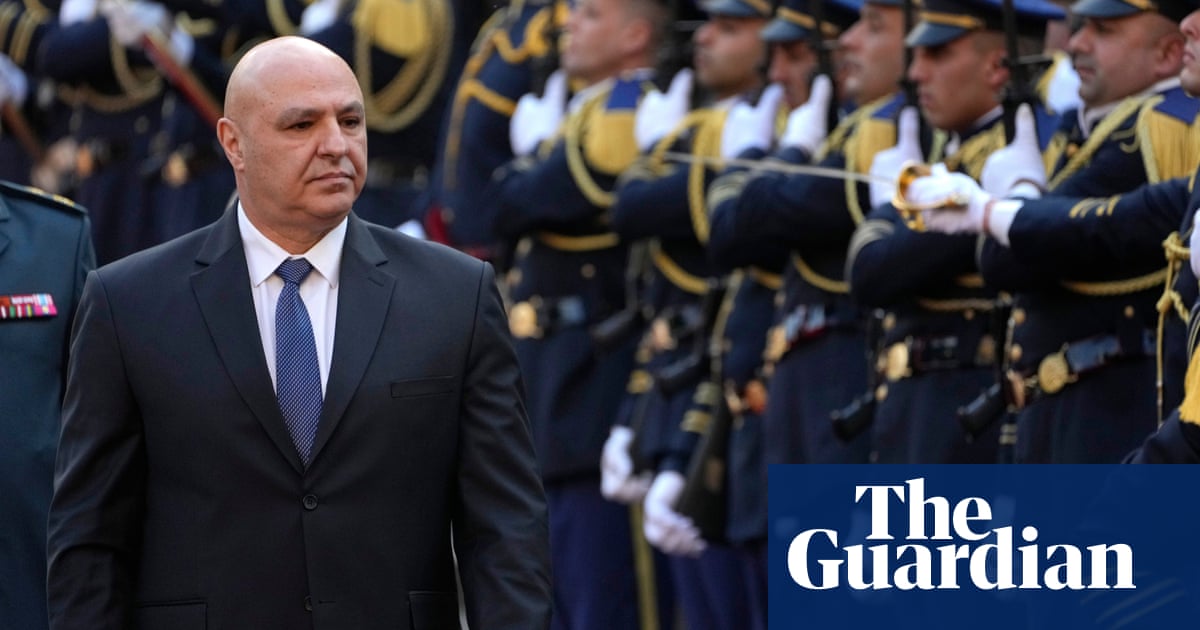Mohammad Abedini was arrested by Italian authorities at Milan’s Malpensa airport on a US warrant on 16 December, accused of supplying the technology for a drone strike in Jordan which killed three US service personnel.
Iran has warned Italy that it risks harming bilateral relations if it bows to the “political and hostile goals” of the United States by detaining an Iranian engineer on a US warrant in connection with a drone attack in Jordan last year that killed three American troops.
Tehran issued the warning to the Italian ambassador to Iran, Paola Amadei, who was summoned to the foreign ministry, the official IRNA news agency reported.
The meeting took place a day after Italy summoned the Iranian ambassador over the detention of the Italian journalist Cecilia Sala in Tehran.
The back-to-back diplomatic summonses underscored how a three-nation tangle over the fates of the two prisoners was becoming more complicated for Italy, which is a traditional ally of Washington but also maintains good relations with Tehran.
Mohammad Abedini was arrested by Italian authorities at Milan’s Malpensa airport on a US warrant on 16 December.
The US Justice Department accuses him and another Iranian citizen of supplying Iran with the drone technology that was used in a January 2024 attack on a US outpost in Jordan that killed three American troops.
Three days later, the Italian reporter for the Il Foglio daily paper, Cecilia Sala, was arrested in Tehran.
She had arrived in the country on 13 December on a journalist visa and was arrested on charges of violating the laws of the Islamic Republic, IRNA said.
Il Foglio said Sala is being held in Tehran’s Evin Prison, notorious for holding dissidents.
Italian commentators have speculated that Iran is holding Sala as a bargaining chip to ensure Abedini’s release.
According to IRNA, a foreign ministry official, Majid Nili Ahmadabadi, told Paola Amadei that Rome’s continued detention of Abedini was an “illegal act that is done based on the US demand and in line with the political and hostile goals of the country to hold Iranian nationals hostage in various points in the world.”
All eyes will be on the Milan court of appeals, which has scheduled a hearing for 15 January to decide whether to keep Abedini at Milan’s Opera prison or grant him house arrest pending the start of the lengthy extradition process to America.
The US government hasn’t commented publicly on Abedini’s petition, but in the past it has complained to Italy’s justice ministry about a half-dozen cases of suspects wanted by the US who escaped from Italy before they could be extradited.
On Friday, Abedini’s lawyer, Alfredo De Francesco visited his client in prison and said he had asked him about Sala.
He said Abedini had heard about Sala’s case inside the prison and didn’t understand any connection to him.
“He asked me if she had been arrested and how she had been arrested, and why in some way they wanted to connect her to him,” the lawyer said.
“I explained the situation to him, even what is said on television, because it is useless to deny it, but I explained to him.”
US federal prosecutors charged Abedini and his co-defendant with export control violations after FBI specialists analysed the drone navigation system used in the Jordan attack and traced it to them.
US prosecutors said Abedini’s Tehran-based company manufactures navigation systems for the military drone program of Iran’s paramilitary Revolutionary Guard.
Iran’s embassy to Italy has connected Sala’s fate to that of Abedini, saying in a statement posted to X that it will respect Sala’s rights and expects Italy to do the same for Abedini.
Traditionally, Iran has enjoyed calm diplomatic relations with Italy compared to other European nations such as the UK, France and Germany.
Those countries routinely accuse Tehran of supplying short-range ballistic missiles to Russia and producing weapon-grade uranium, charges Iran denies.
Article by:Source





















